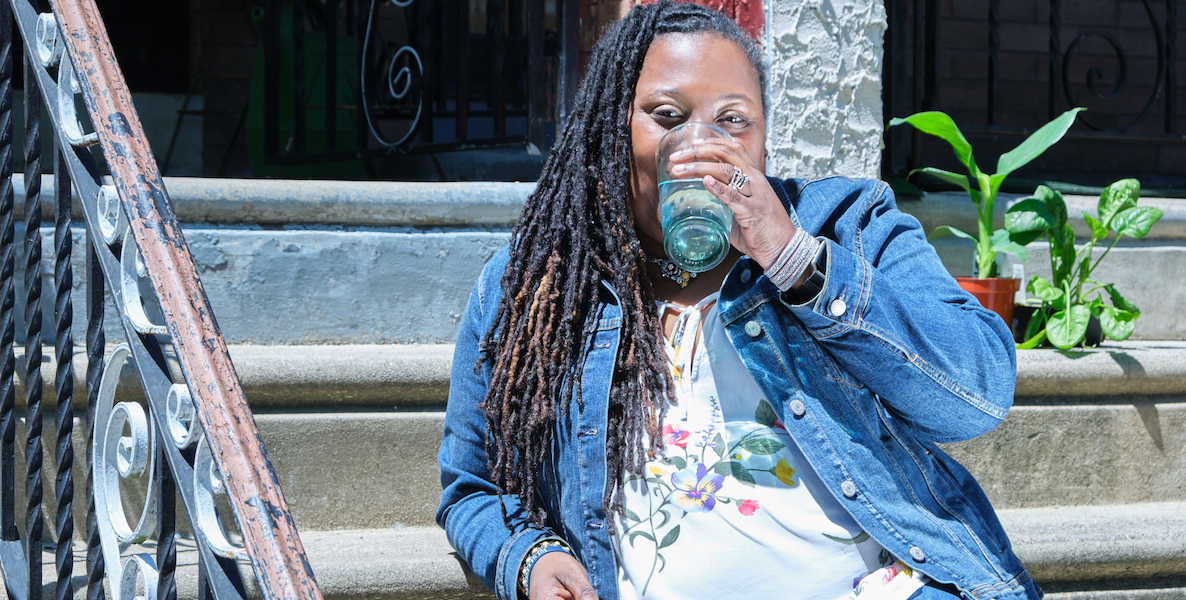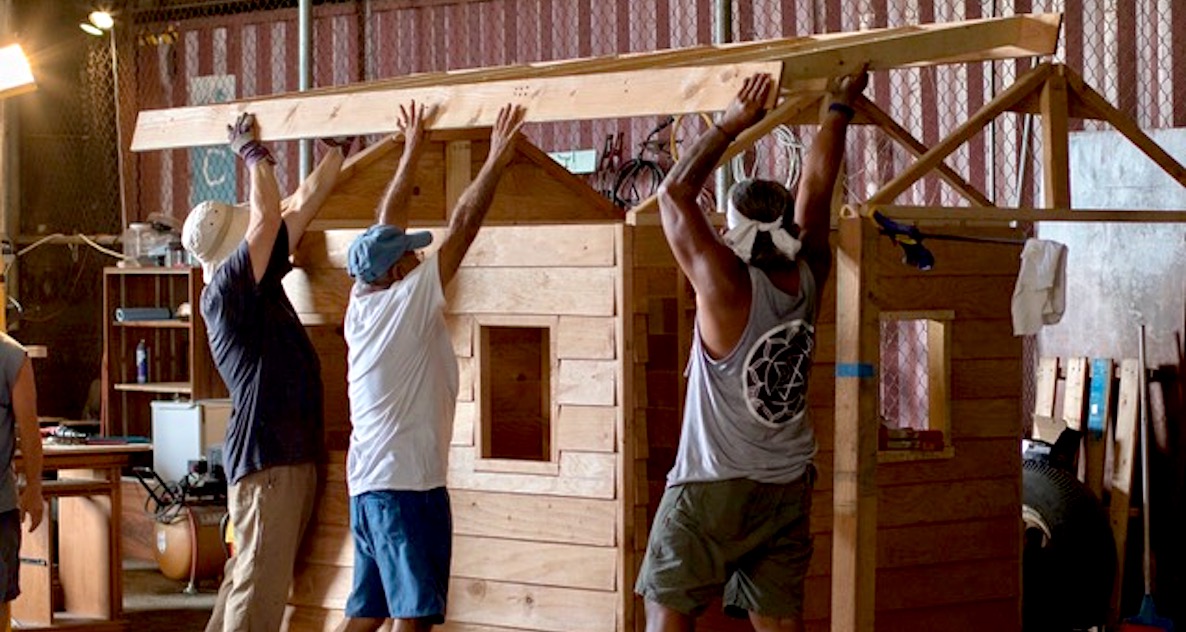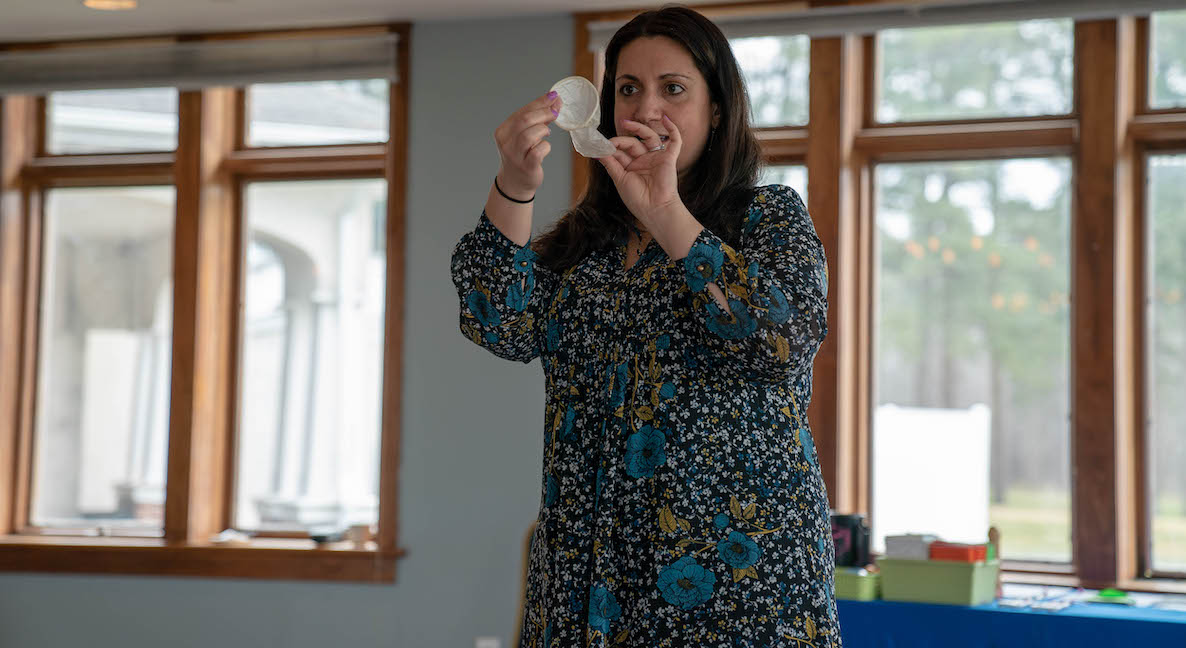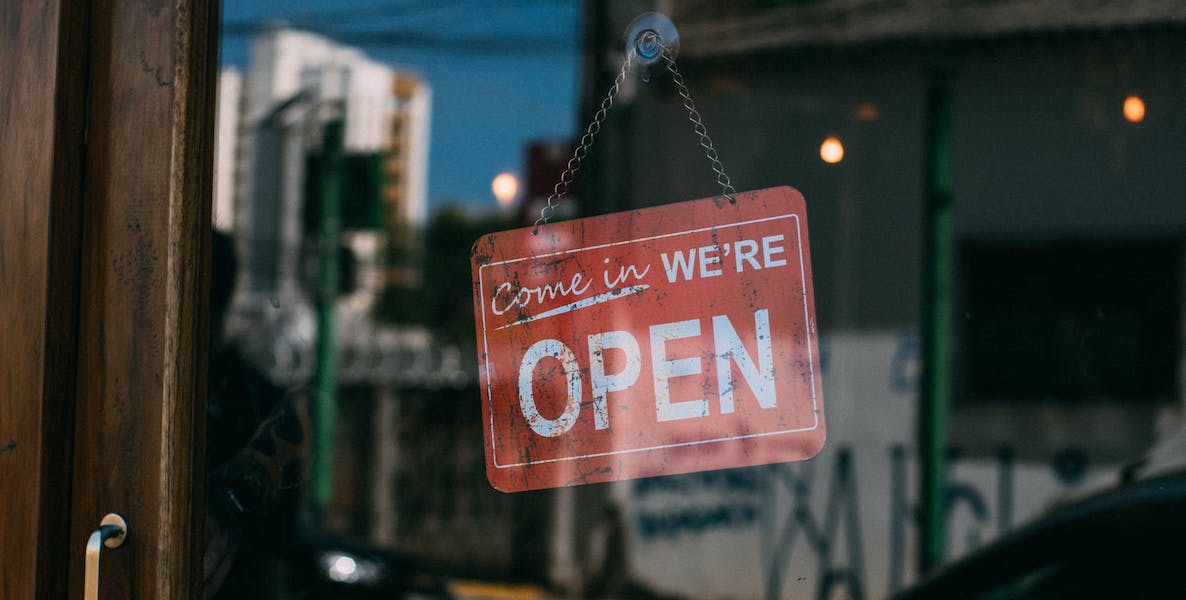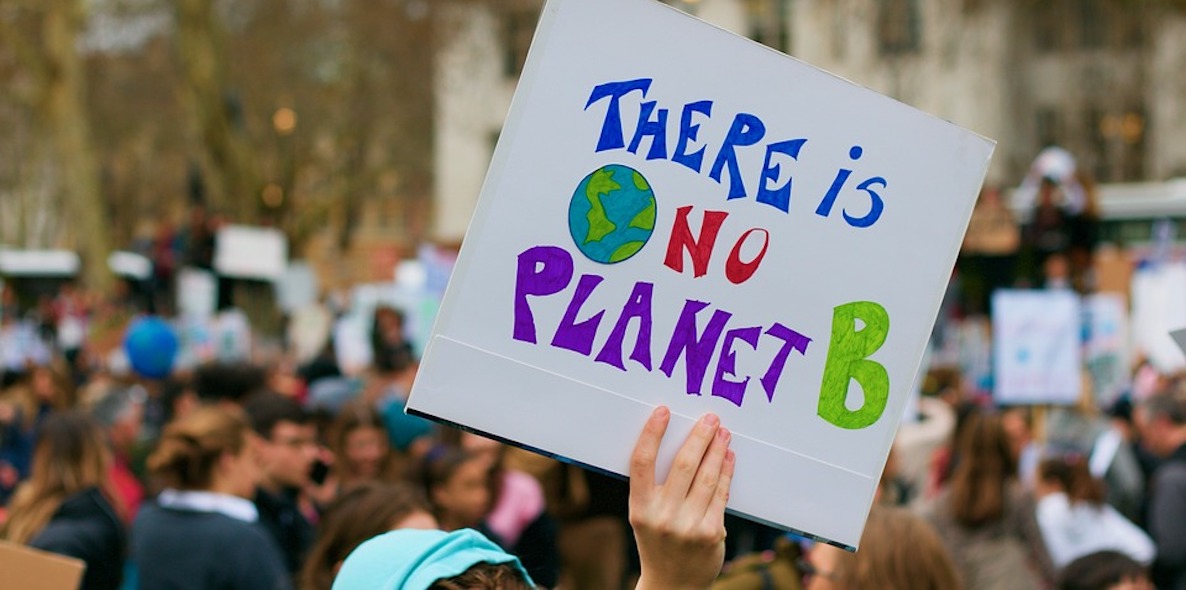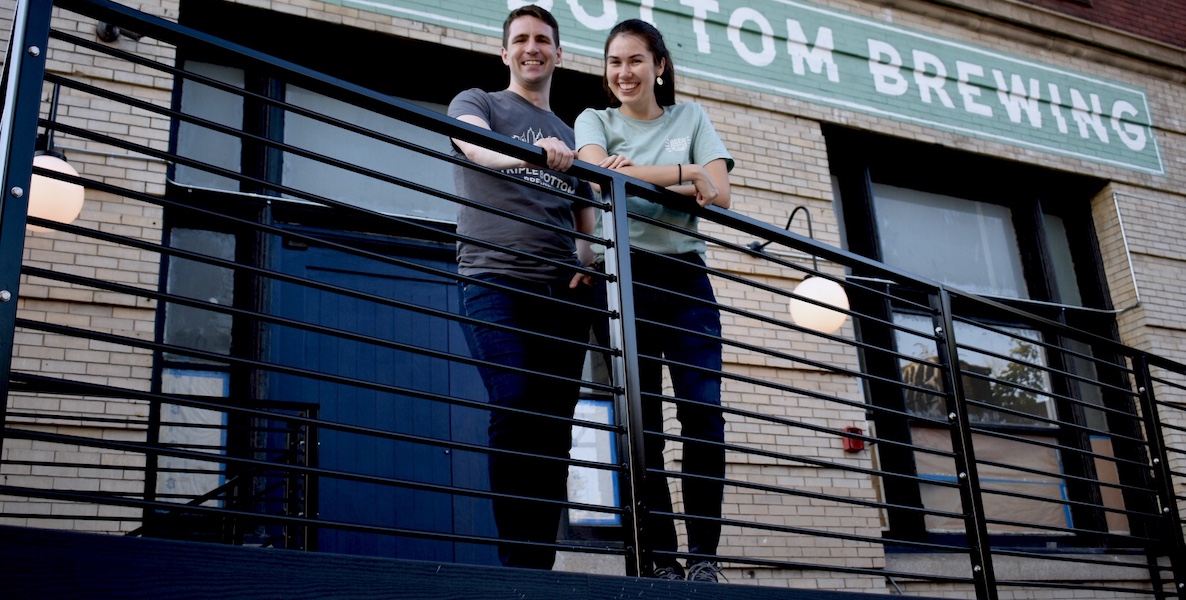When Triple Bottom Brewing opens at 915 Spring Garden, it will hold more than just beer fermentation tanks — there will also be a washing machine.
You’ll have to find somewhere else to do your laundry on days you stop by for a beer, though; the washing machine, along with a dryer and a shower, will be in the staff room, an effort to support employees who may not have that luxury at home. It’s just one of the many ways the fledgling beer company is living up to its name.
The “Triple Bottom” indicates that Tess Hart and Bill Popwell put themselves squarely in the triple bottom line movement for their business — putting people, planet and profit on an equal footing. “We want to figure out how a business can be profitable, but also be good,” says Hart. And what better way to do that, than with something they love: beer.
What sparked the idea for Triple Bottom Brewing
Hart and Popwell are shooting to fully open the doors of Triple Bottom Brewing, now two and a half years in the making, right after Labor Day, with a soft opening the week before — though, as they’ve learned over the course of this journey, things don’t always follow your anticipated timeline in beer-making.
Hart and Popwell, her husband, both come from a background in community development, and that, as well as their conversations about what community is and who fits into the traditional definition of it, sparked the idea for Triple Bottom Brewing. “We saw an opportunity in craft breweries,” Hart explains. “They are inherently places where people come together, but that definition of who comes together hasn’t expanded much.”
When you go to a craft brewery, the demographics of the customers is quite predictable: white millennials, likely college grads, perhaps with a baby tagging along in a stroller. Breweries also can serve as an early sign of gentrification, as middle- to upper-income young people flock to up-and-coming areas. Hart and Popwell are intentionally aiming for something different.
“Philadelphia has the fastest growing millennial population of any U.S. city. At the same time, it has the highest poverty rate of the 10 largest U.S. cities,” notes Hart. “We want to speak to both of those groups who come from a diverging place and bring people together in a way that everyone feels welcome. We want to build some empathy and understanding across those groups.”
This, combined with Hart’s connection to the city and the growing craft beer scene, led to Hart and Popwell’s easy choice for the first home for Triple Bottom.
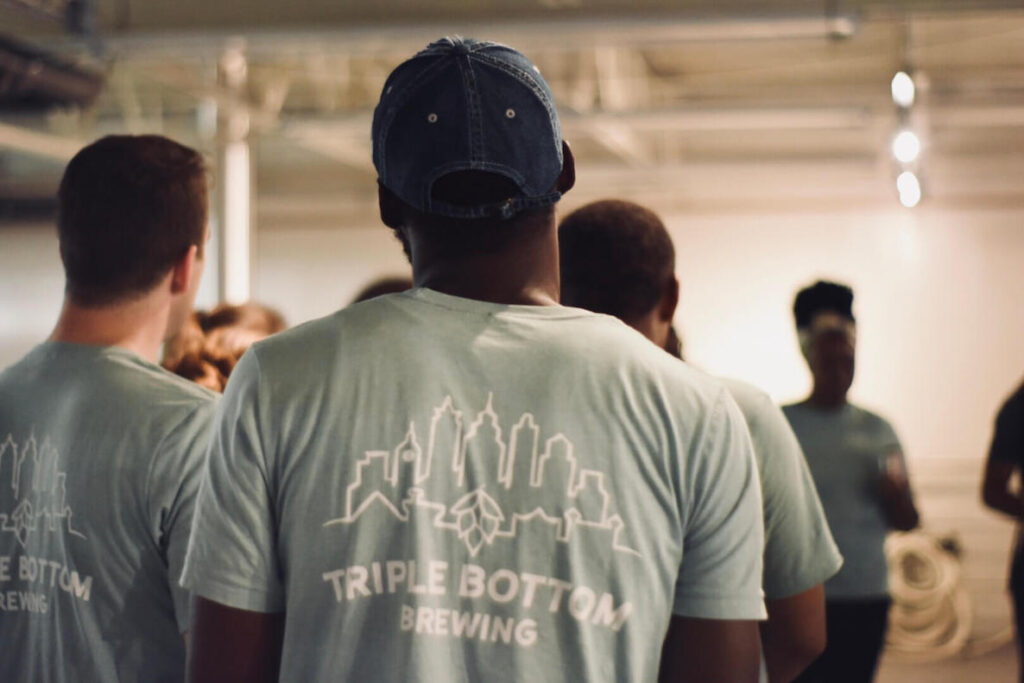
Hart and Popwell grew up more than 1,000 miles away from each other — Hart just outside of Philly in Haverford and Popwell in coastal Mississippi — but they share the experience of being raised in a service-oriented family. Both of their moms were social workers; Popwell’s parents are retired military and Hart’s dad is a Haverford committeeman. They met as undergraduates at Brown University, then moved on to D.C. together, where Popwell worked in community engagement for children’s nonprofit KaBOOM! and Hart did community relations work first in the Senate and then as a consultant for economic development organizations.
In addition to sharing a career path and a drive for engaging with their communities, they both also just really like beer — and breweries. “There is something special about visiting a brewery. Fellow guests come in with a sense of curiosity about the way their beer is made that inspires them to be open-minded towards others, to ask questions, and to learn,” explains Hart. “We rarely felt so connected with complete strangers as we did at breweries.”
“I’ve seen too many companies treat their employees as an afterthought. Not out of malice, it’s just that other priorities come up,” Carney says. “Our employees are the foundation this company is built on. They deserve to be paid well for the work they do.”
During a particularly engaging visit to a brewery in Punta Arenas, Chile in 2014, where Hart and Popwell found that people of all languages and backgrounds were seeking connection across geographical differences, they hatched their plan, picked a name, and set to work on a jobs program, all designed specifically for Philadelphia.
Being a fair-chance business
Triple Bottom recognizes itself as a fair-chance business, in line with its first bottom line: people. This label is used widely by businesses that hire returning citizens, in recognition of the often insurmountable barriers to finding a job that having a criminal record can pose. Hart says that for Triple Bottom, being a fair-chance business means that “our team comes from an incredible variety of life and professional experiences,” and leveraging that variety for Triple Bottom’s and its employees’ success.
Hart and Popwell have filled just under half of their team with employees who have traditionally faced barriers to employment, such as a criminal record or homelessness. They rely on partners Project HOME, the Youth Sentencing and Reentry Project, and Mural Arts Philadelphia to refer such candidates to them, and the nonprofits will continue to offer wraparound services for the team members throughout their employment with Triple Bottom.
All employees will have access to professional development, both of the beer brewing variety and behavioral skills, and all employees will have paid time off, an uncommon benefit in the bar and restaurant industry and for part-time workers more generally. With the proper support, Hart and Popwell will be able to hold all employees to the same high standards.
“Philly has this ridiculously high poverty rate based on all of these social and systemic barriers that just don’t allow for equal access to good jobs,” says Hart. “There’s a lot of people in Philadelphia who have great skills and great drive and deserve the chance to have a great job that gives them the chance to set goals and achieve them. We recognize that some of our team members may have struggled with housing instability or getting child care, so the nonprofits are available to provide that outside support.”
Co-founder and head brewer Kyle Carney says this mission is largely what drew him to partner with Hart and Popwell. “I’ve seen too many companies treat their employees as an afterthought. Not out of malice, it’s just that other priorities come up,” he says. “We can’t forget about our people — it’s right there in the name; it’s written into our business plan; it’s the definition of who we are as a company. Our employees are the foundation this company is built on. They deserve to be paid well for the work they do.”
Triple Bottom’s second bottom line: the planet
Triple Bottom Brewing’s second bottom line, the planet, means sourcing local ingredients when they can and minimizing the massive amount of waste that comes out of breweries. The first part of this will largely be executed through partnering with local, environmentally conscious producers of other food and beverage products to sell at Triple Bottom.
Wine from Karamoor Estate and cider from Hale & True Cider Co. will be on tap, and visitors can snack on the brewery’s charcuterie boards with cheese from Di Bruno Bros, meat from 1732 Meats, and bread from Mighty Bread Co. and Lost Bread Company. “It’s been fun to get to know other folks who are really taking care of their craft,” explains Hart.
While the team would also love to include local hops and malts in their beer, this has been tough because the local climate isn’t ideal for growing hops. The Triple Bottom team hopes that a growing group of brewers who want to source locally may help build out the supply chain around beer in the region, allowing them to source local ingredients in every aspect of their business.
Hart, who has a master’s in environmental management from Yale, says one of the ways they’ll be reducing their footprint is by giving their spent grain, the grain leftover after the brewing process is complete, to local farmers to fertilize their land and to feed their steer. They will also save and reuse the water and chemical mixture used to clean their brewing tanks rather than washing the chemicals into the city’s water system after each clean, and would like to eventually find artists and makers in the city who may want to repurpose their grain bags.
The third bottom line? Profit, of course.
Triple Bottom’s third bottom line is, of course, profit, and Hart and Popwell have hired Carney, who has 15 years of brewing experience, to create what’s at the center of all of this: the suds. Carney says he and his co-founders are focusing on sessionable beer, an easy drink with a low ABV. “We’re going for a more balanced, lower alcohol product for our core brands. That’s not to say we won’t have stronger, more highly flavored offerings, it’s just not our priority,” he says. “They’ll be available as one-offs and limited release.”
Triple Bottom will also always have a lager or something like it on tap. Hart says this is “in the spirit of making sure we’re accessible to everyone, because people who might be intimidated by craft beer culture are probably lager drinkers.”
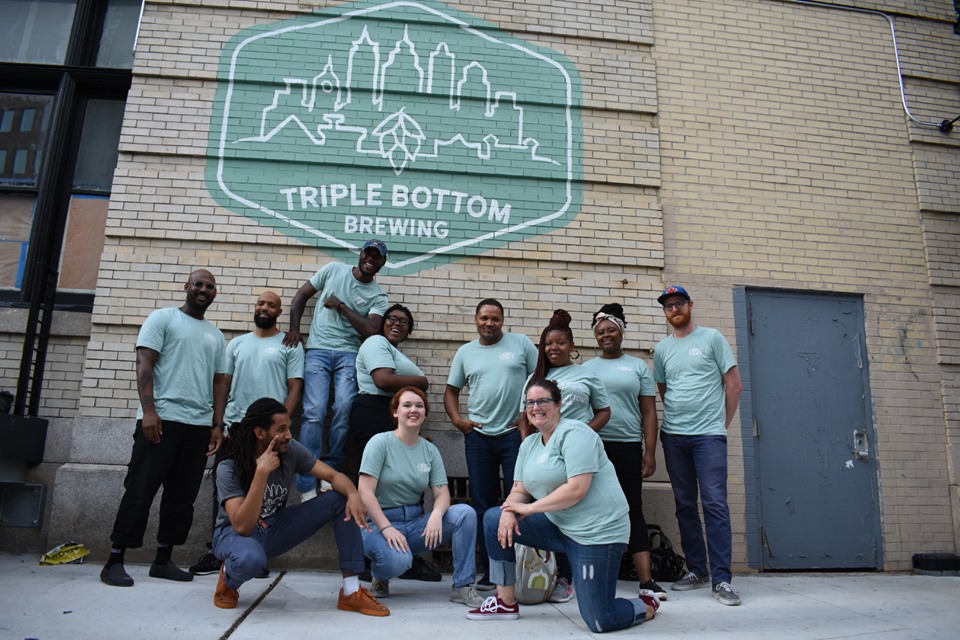
Triple Bottom’s beers are all named “in homage to the Philly community experience,” according to Hart, such as their Block Party Pale Ale. The Saison 122, a favorite pilot beer named for Carney’s address when the group was still brewing in his driveway, will also appear on tap, though perhaps under a different name. Currently, the brewery’s fermentation tanks are full of a West Coast-style IPA, and will next be occupied by a lemon ginger wheat beer, both of which will be on tap opening week.
Triple Bottom Brewing first started fundraising for their venture via Indiegogo in December 2016. They eventually raised $32,000, followed by additional seed money via investors and loans, and signed a lease for the building in April of 2018. They also launched a beer share for pre-order in December 2018, a monthly subscription modeled after a farm share in which members pick up a collection of crowlers, 16 oz. 4-packs, and/or 750ml bottles every month. Members, who pay $175 for six months or $325 for twelve, also receive discounts on draft pours and merchandise and can begin picking up on opening day.
915 Spring Garden is seemingly the perfect home for a project like Triple Bottom Brewing; though it primarily served as office space for the Reading Railroad, it contained a YMCA, complete with a bowling alley, and a welcoming room for immigrants new to Philadelphia — a space built on community and bringing people together.
The building’s neighborhood and the changes happening within it also speaks to Triple Bottom Brewing’s goals. The area around it is largely industrial, in a section of the city with low housing density and hazy boundaries that is sometimes referred to as Callowhill, but is also quite close to Spring Garden. It’s often described as a “donut hole” because it is surrounded by activity — the Chinatown North, West Poplar and Callowhill neighborhoods circle it — but until recently not much was happening commercially inside of it. Now it is home to Union Transfer, as well as a number of other restaurants and bars.
The building’s owner, Arts & Crafts Holdings, is working on a revitalization of the area that has come to be called “Spring Arts.” But changing the name of neighborhoods can be tricky and sometimes distressing for local residents, and Hart recognizes that change like this can be tough on neighbors.
Hart and Popwell are eager to get input from neighbors on the space to maintain the inclusive spirit of their project. “This area has been vital for a long time, it just hasn’t been on people’s radars,” says Hart. “We’re excited to be a part of bringing this neighborhood back to its potential; we want to see what’s happening that is core to the community and how do we lift that up.”
Correction: An earlier version of this story had the wrong name of Triple Bottom Brewery’s new building; it is 915 Spring Garden. Also, the article misstated Arts & Craft Holdings’ role; it owns the company.
![]()
RELATED
Photo via Sola Onitiri



